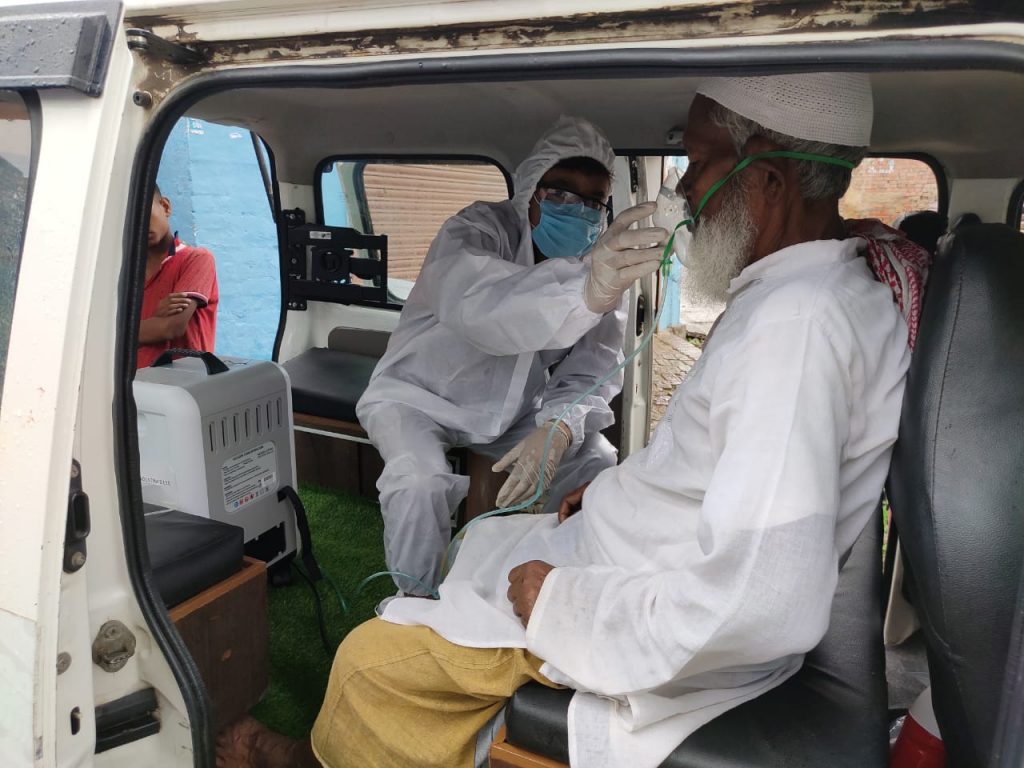As India geared up for the vaccination drive, read how the rural India has been reacting and coping up with it.
By Digital Empowerment Foundation

In June 2021, Research and Advocacy division of DEF along with Osama Manzar (Founder-Director of DEF) the Projects division organized a webinar to interact with the DEF’s Soochnapreneurs and Smartpur Coordinators working in remote parts of the country. The aim of the webinar was to gain perspectives on COVID-19 vaccination drive and how it is unfolding on ground. There were a total of 25 Soochnapreneurs and Smartpur Coordinators from 13 states: Rajasthan, Madhya Pradesh, Telangana, West Bengal, Tamil Nadu, Assam, Uttar Pradesh, Haryana, Maharashtra, Bihar, Jharkhand, Andhra Pradesh and Karnataka.

Till the very last year DEF’s Soochnapreneurs and Smartpur Coordinators were involved in disseminating digital literacy and governmental welfare schemes to the remote areas across India. COVID-19 pandemic turned them into last mile health delivery workers, proving useful in registering village dwellers for vaccines as well as spreading awareness around the same.
The insights shared by them were interesting and despite being from various corners of India, there were quite many parallels and themes that emerged from the discussion.
- Role of DEF’s Soochnapreneurs and Smartpur Coordinators
Soochnapreneurs and the Smartpur Coordinators have been relentlessly working on ground in accelerating the vaccination drive in different capacities. They have been disseminating information about the status of the vaccination drive; spreading awareness around vaccines and its importance; tackling various levels of vaccine hesitancy or misinformation around the same; registering people on the COWIN portal; assisting the ASHA-ANM workers in vaccinating people.
- Reluctance on the part of people and misinformation
One of the major themes that emerged from the discussion was the barrage misinformation, rumours surrounding vaccine leading to hesitancy and reluctance among large section of people. People have been refusing to get vaccines citing reasons like vaccines would lead to death, impotence/infertility, COVID, amputation in arms/legs, complications amongst diabetic and pregnant people, among others.
However, apart from efforts to tackle these rumours or misinformation, there have been coercive methods like ‘no vaccine, no ration’ at the community levels to push the vaccination drive.

- Digital portal versus Walk-in vaccinations and role of Panchayats, PHCs and CHCs
Initially when the vaccine registration was rolled out and the decentralised way did not come into force, people found it really difficult to get through the COWIN portal to register and book slots. And, at this point DEF’s Soochnapreneurs and Smartpur Coordinators came into force, delivering the imperatives – registering people on COWIN platform using their Aadhaar card; check for open slots in nearest Public Health Centres/Community Health Centres (PHCs/CHCs).
However, when the vaccination drive was decentralised, health camps, PHCs and CHCs gained more importance as compared to other days as interested people flocked to their nearest centres to get vaccines, which implies that people found walk-in registration and vaccination much convenient over online portal way.
- Vaccine shortage
Another major theme that emerged from the discussion was that there is an acute shortage of vaccines at the rural levels. Even when people are willing to get vaccinated, it turns out that the vaccines are unavailable at their nearest PHCs/CHCs, for which they have travelled multiple kilometres inconveniently during the COVID-19 imposed lockdown. And, therefore, people are getting even more reluctant as to why they must get themselves registered, travelled far off centres, just to return back homes empty handed and start drill all over again the next day.

In an official statement, the Union Health Minister of India, Dr. Harsh Vardhan said that India will have procured 267 crores COVID vaccines by the end of 2021, out of which 51 crore COVID–19 vaccine doses will be made available by July and a further 216 crore more doses being made available between August and December. On one hand, Dr. Harsh Vardhan said that India will be in a position to inoculate all of its adult population by the end of 2021; on another hand, as less as 3.6% population of India have been able to get themselves vaccinated till June 19 2021.

In a nutshell, all these highlighted issues combined reveal a highly complex picture of the rural realities of the vaccination drive and present a challenge to achieve the target of a fully vaccinated nation much difficult.










